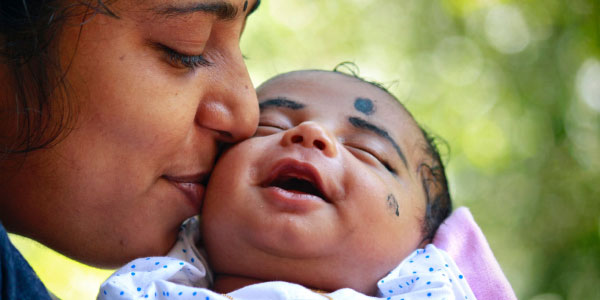Pregnancy and Depression - 5 Myths and Facts

Myth 1: A woman of childbearing age is no more vulnerable to depression than at any other time in her life.
False. Women, who are twice as likely as men to be clinically depressed at some point in life, are most vulnerable to depression during their childbearing years.1
Myth 2: The “perinatal” period in particular — the period immediately before and after childbirth — is a naturally happy one in a woman’s life, in which it’s abnormal to be depressed.
False. Depression, particularly in the period after giving birth, is common, affecting one new mother in seven, or about 14 percent, regardless of whether a woman was ever depressed previously.2
Myth 3: What doctors call “postpartum depression” (PPD) is just a fancy name for what has long been called the “baby blues.”
False. While it’s to be expected that new mothers will feel tired and/or depressed during the first week to 10 days after giving birth — the “baby blues” — sadness that persists beyond that point should be discussed with a doctor. The distinguishing feature of postpartum depression is the persistence of feelings that diminish a woman’s capacity or desire to perform her maternal functions.1
Myth 4: If you don’t get PPD right after you give birth, you won’t get it at all.
False. PPD can happen any time in the first year after a woman gives birth.
Myth 5: Depressed pregnant women should not take antidepressant drugs, and women with PPD should never take antidepressant drugs while they are breastfeeding.
As generalizations, these statements are untrue. While every woman should assess her own case in consultation with a qualified physician, taking into consideration risk factors particular to her own case (drawn in part from family and individual medical history), the best recent studies have demonstrated that the risks of taking antidepressant drugs either during pregnancy or after giving birth are no greater, and often less, than the risk of a depressed woman discontinuing her treatment. There are risks, to mother and baby, associated both with untreated depression and treatment with antidepressant drugs. In cases of serious depression, in particular, it is often judged much less risky to remain on medication than to stop it. In some cases, non-drug treatments are a good alternative.2
This article originally appeared in the Brain & Behavior Research Foundation's Research Quarterly and is reprinted with permission.


























